Bali’s Secret Plantations – Discover the Island’s Hidden Spice and Cocoa Farms
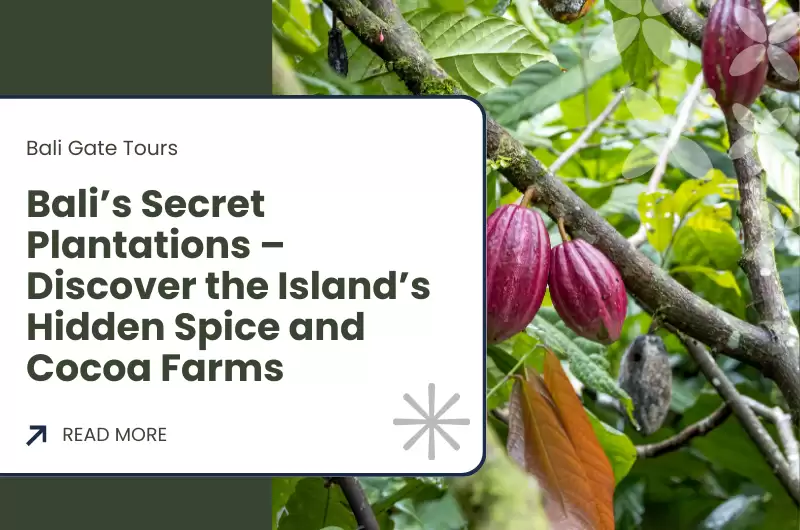
Bali is widely known for its stunning beaches, vibrant nightlife, and rich spiritual culture. However, what many visitors overlook is the island's deep connection to agriculture. The fertile soil, coupled with Bali’s diverse microclimates, allows for a wealth of crops to thrive in the heart of the island. Bali’s spice and cocoa farms remain hidden treasures, waiting to be explored by those who wish to discover a more grounded side of Bali beyond the tourist attractions.
In this article, we will take you on a journey through Bali’s secret plantations, where you can explore spice farms and cocoa plantations that have remained largely untouched by mass tourism. These plantations offer visitors a unique opportunity to experience Bali’s rich agricultural history, sample local flavors, and even participate in organic farm tours to see how these valuable crops are grown, harvested, and processed.
Whether you’re a food lover, a nature enthusiast, or simply curious about Bali’s agricultural landscape, these hidden plantations provide an immersive experience that connects you to the land and the island’s vibrant farming culture. Let’s dive deeper into Bali’s secret spice and cocoa farms and explore the flavors and stories behind these unique crops.
The Role of Agriculture in Balinese Culture
Bali’s agriculture is not only important for the economy but also deeply intertwined with its culture and spirituality. The island’s agriculture is centered around the Subak system, a traditional water management system used for rice cultivation that has been recognized as a UNESCO World Heritage practice. The Subak system has shaped much of Bali’s rural landscape and is an essential part of the island's agricultural identity.
While rice is undoubtedly the island’s most famous crop, Bali’s spice and cocoa plantations add to the island’s rich agricultural diversity. The fertile volcanic soil of Bali supports a variety of crops, including cloves, nutmeg, cinnamon, ginger, and cocoa. These crops have been grown on the island for centuries, and many of Bali’s hidden farms still rely on traditional, sustainable farming methods passed down through generations.
In addition to their agricultural significance, these crops also play an important role in Balinese cuisine, culture, and daily life. From aromatic spices used in Balinese cooking to the rich flavor of Bali’s locally grown chocolate, the island’s spices and cocoa offer a deeper taste of Bali’s agricultural heritage.
1. Exploring Bali’s Spice Plantations: From Cloves to Cinnamon
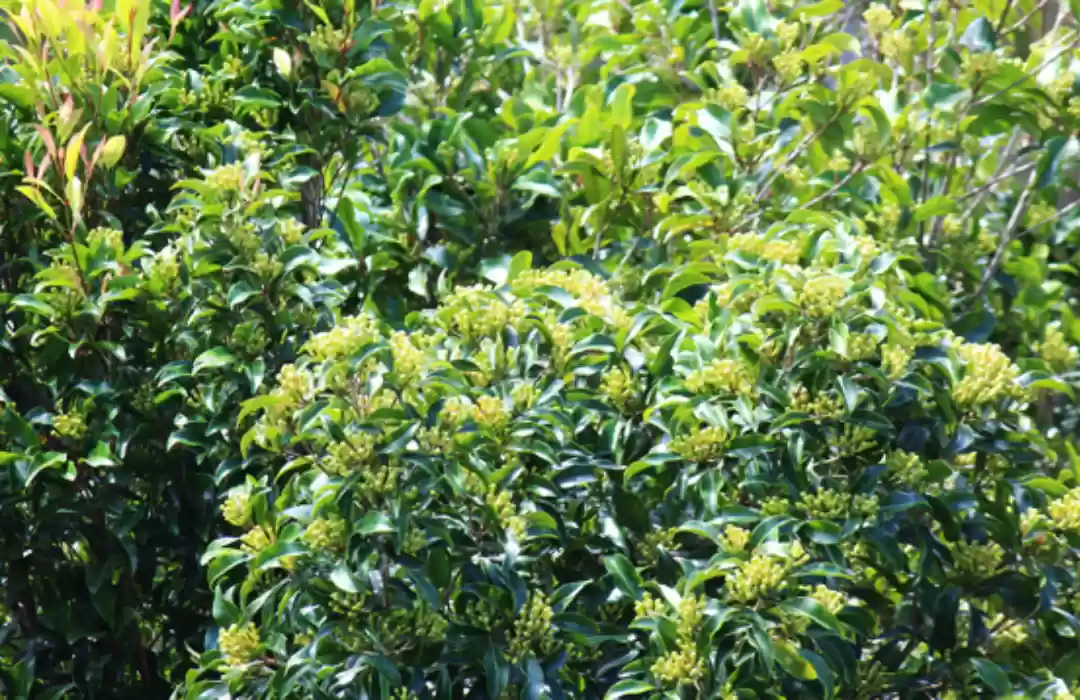
Bali is home to several hidden spice plantations, where you can explore the island’s rich history of spice cultivation. Spices like cloves, nutmeg, cinnamon, and ginger have been integral to Balinese cuisine and culture for centuries, and many of these farms offer visitors a chance to learn about how these crops are grown, harvested, and processed into the vibrant ingredients used in local dishes.
One of the most notable spice plantations in Bali is located in the Tegallalang region, an area known for its picturesque rice terraces. The plantation, run by local farmers, is an educational farm where you can wander through the rows of spice plants and watch as farmers harvest and dry the produce. During your visit, you’ll learn about the traditional farming methods that have been used for generations, ensuring that the crops are grown organically and sustainably.
Spice tours often include a chance to taste freshly harvested spices, like clove tea, cinnamon, and ginger, as well as spice-infused oils and herbal products. Many of these plantations also offer cooking classes where you can use the spices grown on the farm to create traditional Balinese dishes like Bebek Betutu (slow-cooked duck) and Rujak (spicy fruit salad).
For those seeking an immersive experience, some spice farms in Tegallalang also offer overnight stays, where you can help with the harvest and learn more about the spiritual and cultural significance of spices in Balinese life.
2. Bali’s Cocoa Plantations – The Sweet Side of the Island
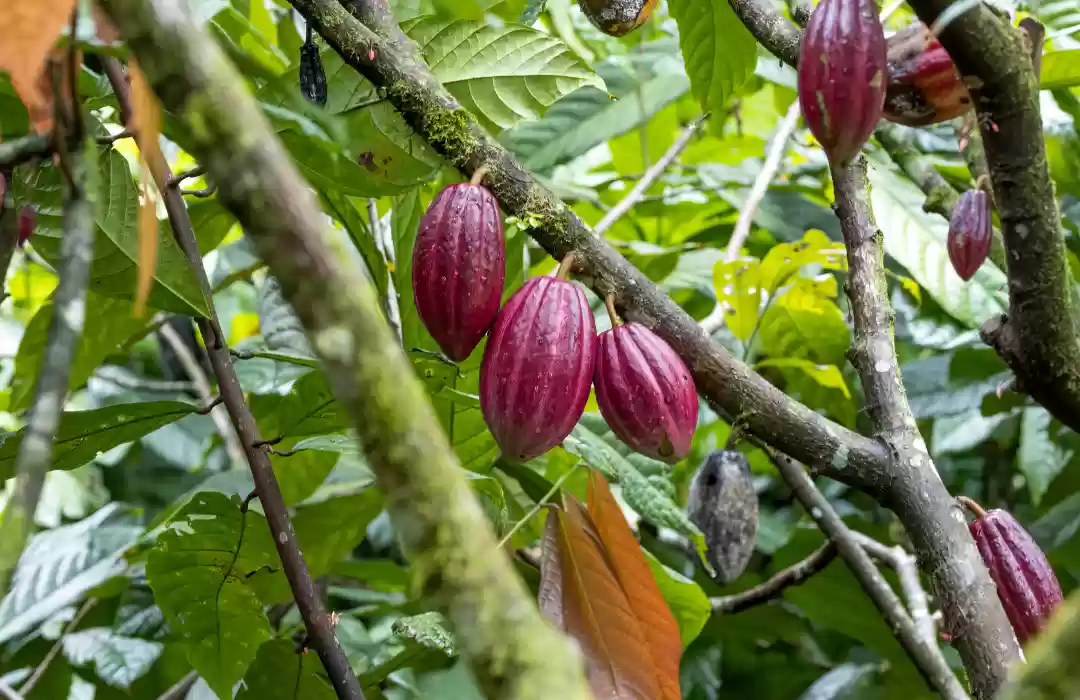
While Bali is more commonly associated with coffee, the island’s cocoa plantations are a hidden treasure that are perfect for chocolate lovers. Bali’s fertile soil and warm climate provide the perfect conditions for growing high-quality cocoa, and the island’s cocoa farms produce some of the best beans in the world.
One of the secret cocoa plantations that’s a must-visit is located in the Tabanan region, where the plantations are nestled in the lush jungles of Bali’s west. These farms grow a variety of cocoa, including fine-flavor cocoa varieties that are used to produce artisan chocolate. During your visit, you can take a guided tour of the plantation, where you’ll learn about the process of harvesting cocoa pods, fermenting the beans, and transforming them into high-quality chocolate.
At some of these cocoa farms, you’ll also have the opportunity to participate in chocolate-making workshops, where you can get hands-on experience in crafting your own Bali-style chocolate bars. These workshops offer a unique insight into the craftsmanship behind the island’s artisan chocolate, and you’ll leave with a deeper appreciation for the art of chocolate-making.
In addition to its chocolate products, many of these farms also offer delicious cocoa-based treats like chocolate cake, hot cocoa, and cocoa nibs that showcase the incredible flavor of Bali’s locally grown cocoa. Whether you’re sampling the chocolate or learning how it’s made, a visit to Bali’s cocoa plantations is an experience that will satisfy both your curiosity and your taste buds.
3. Sustainable Practices – How Bali’s Plantations Support the Environment
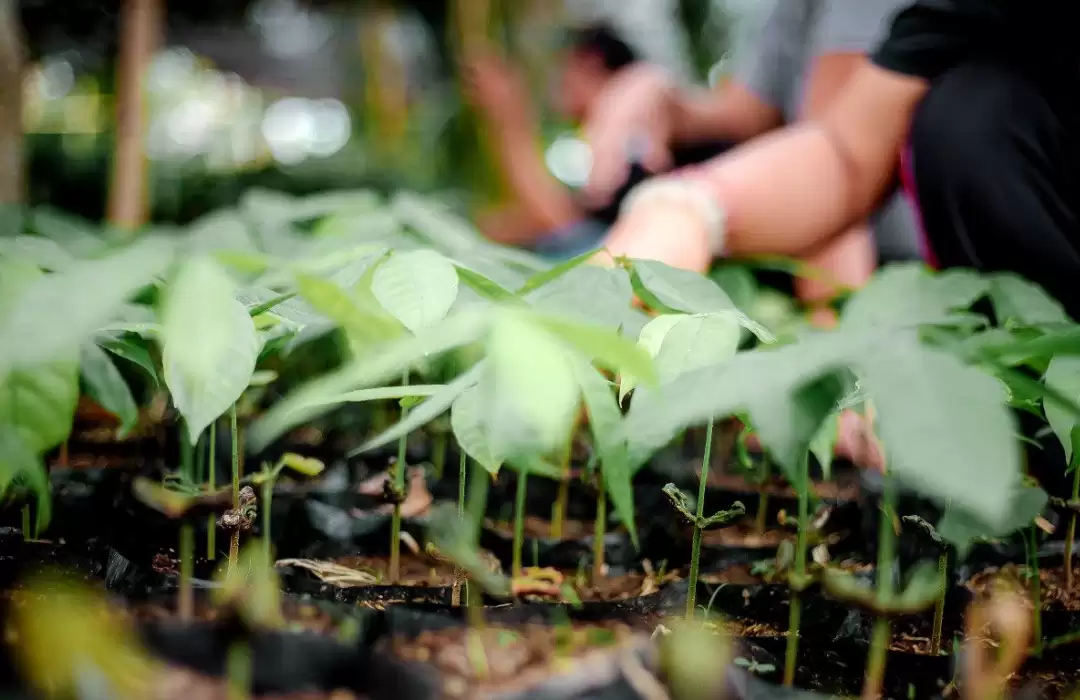
One of the most remarkable aspects of Bali’s spice and cocoa plantations is their commitment to sustainability and eco-friendly practices. Many of these farms focus on maintaining organic and regenerative farming practices, ensuring that the land is protected for future generations. The farmers rely on natural methods to control pests, maintain soil health, and minimize environmental impact.
Bali’s organic farms often incorporate permaculture principles, which focus on creating a self-sustaining agricultural system that works in harmony with the environment. These farms are dedicated to maintaining the biodiversity of the land and using farming techniques that respect the natural balance of the ecosystem.
When you visit Bali’s spice and cocoa plantations, you’ll learn not only about the agriculture but also about the sustainability efforts that help preserve the island’s natural resources. Many farms offer educational tours where visitors can witness firsthand how organic farming and sustainable practices are used to grow crops while protecting the environment.
4. The Farm-to-Table Experience: Dining on Fresh, Local Produce
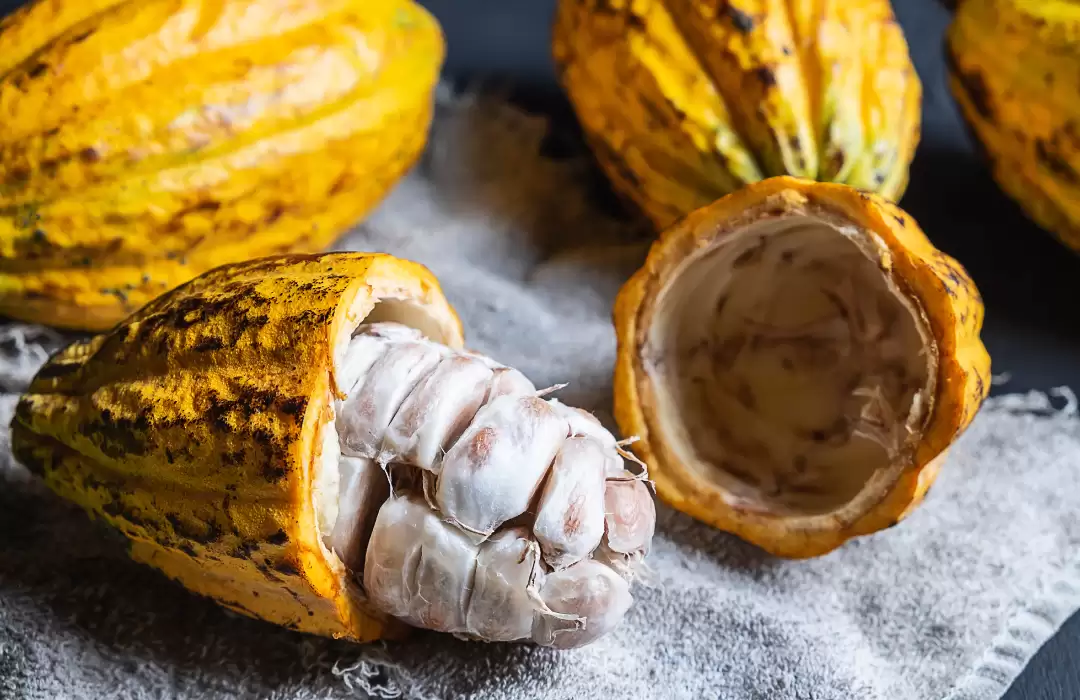
Bali’s farm-to-table dining is an experience like no other, and visiting the island’s spice and cocoa farms offers a chance to experience fresh, locally sourced food in a truly authentic way. Many of the farms collaborate with local restaurants and chefs, providing them with organic produce and spices that are used to create delicious, traditional Balinese dishes.
At some of the more exclusive plantations, visitors can enjoy farm-to-table meals prepared using the very ingredients they’ve just seen harvested. Imagine enjoying a delicious lunch made with freshly harvested spices, paired with locally grown fruits and vegetables. Some of Bali’s best restaurants source their ingredients from these local farms, and visiting the source of these ingredients gives you a deeper connection to the food you’re eating.
Many farm tours also include a cooking class where you’ll learn to prepare a traditional Balinese feast using ingredients from the farm. The opportunity to create a meal from fresh, local produce and spices is an experience that will leave you with lasting memories of Bali’s culinary traditions.
A Taste of Bali’s Agricultural Heritage
Bali’s spice and cocoa plantations offer a unique and enriching experience for anyone seeking to explore the island’s agricultural heritage. These hidden farms are the perfect way to connect with the island’s natural beauty, learn about its agricultural traditions, and savor the fresh flavors that Bali has to offer.
By visiting Bali’s spice and cocoa farms, you’re not just tasting the island’s best produce—you’re also supporting sustainable farming practices and connecting with the local communities that grow the food. So, if you’re looking for a truly authentic Bali experience, make sure to include a visit to one of these secret plantations on your itinerary. You’ll leave with a new appreciation for Bali’s rich agricultural culture and a deeper connection to the island’s natural resources.










